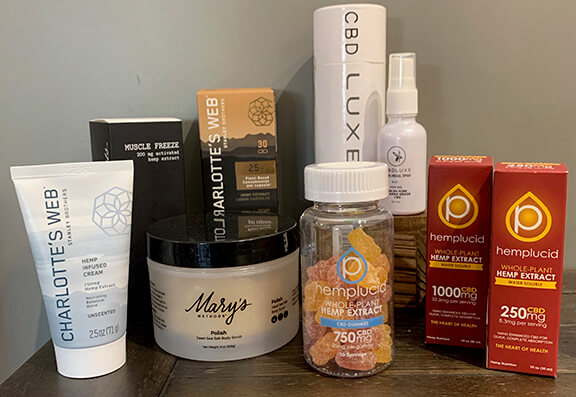CBD Education
Can CBD Help with Inflammation?
Inflammation happens as the body’s response to injury and infection. It’s a call-to-action for healing and protecting from foreign invaders. If we didn’t have an inflammatory response, infections and wounds wouldn’t heal.
Acute Inflammation
For injuries and infections, we call it “acute” inflammation, meaning it’s temporary, an injury, until it’s healed. Acute inflammation causes red blood vessels to dilate, which increases blood flow to the affected area to repair the injury. Then, white blood cells rush in to begin the healing process. Signs of acute injury are:
- Pain
- Swelling
- Heat
- Immobility
- Redness
Chronic Inflammation
Chronic inflammation, also called low-grade or persistent inflammation, typically causes whole-body effects and last for longer lengths of time than an acute injury. Chronic inflammation can have long-term effects, such as swollen and stiff joints, as in arthritis.
For chronic inflammation, it can be the cause of some diseases. Some of the most prominent and well-known diseases caused by inflammation are heart disease, arthritis (inflammation in the joints), and lupus. There are times when low-level inflammation settles where it’s not needed or necessary, which signals the immune system. If there isn’t any inflammation in the area, white blood cells can start to attack healthy tissue and organs.
Using Diet To Combat Inflammation
Diet, as we know, plays a huge role in our overall health. For inflammation, it’s recommended to eat as many whole foods as possible, with high levels of omega-3 fats, which protect cells from the body’s inflammation. An anti-inflammatory diet, much like the Mediterranean, should include eating lots of fish, fresh fruits and vegetables, and whole grains.
Foods that can cause inflammation, and that should be avoided as much as possible, include: Dairy, red meat, and partially hydrogenated oils. You’ll want to limit processed foods with sugar and refined carbohydrates, as well as cutting back on vegetable oils that contain high levels of omega-6 fatty acids, such as in margarine and corn oil.
CBD For Inflammation
CBD has been shown in many studies to help patients with pain. Applied directly to the skin, it could help with the inflammation of arthritis. While many more studies need to be done, scientists have found that CBD could inhibit inflammatory and neuropathic pain, which are very difficult for physicians to treat.
What’s the best way to use CBD? It’s become a versatile product, with innovation on delivery methods. CBD can be found in many products, such as:
As with anything, talking with your physician about your acute or chronic pain should be your first step to healing. If you have questions about CBD products, ask on your next visit to Kaya Hemp Company, or email us at info@kayaholistic.com

